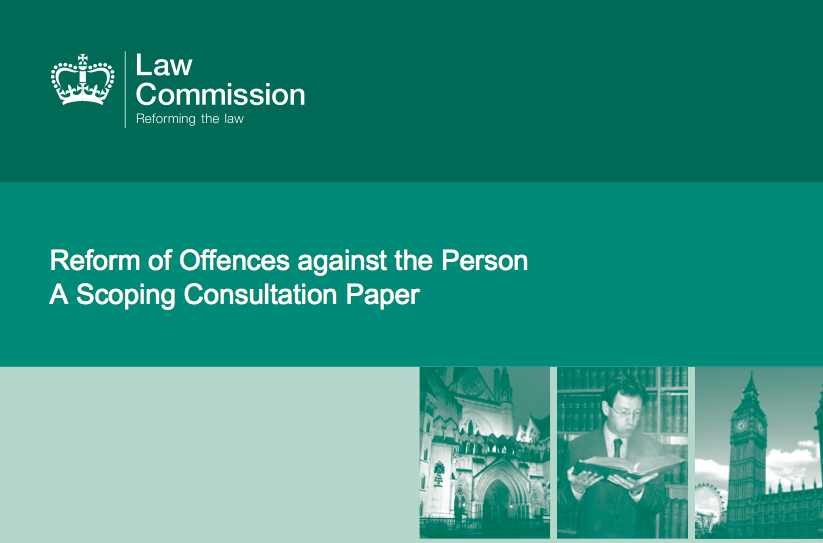
This week, the Law Commission – which reviews areas of the law in England and Wales that have become unduly complicated, outdated or unfair – will conclude its scoping consultation of the reform the Offences Against The Person Act, the law that is currently used to prosecute people living with HIV (and occasionally other sexually transmitted infections; one each so far for gonorrhoea, hepatitis B and genital herpes) for ‘reckless’ or ‘intentional’ transmission, as grievous bodily harm.
The deadline for responses is this Wednesday 11 February 2015.
The consultation is a scoping review – it is looking at the scope of whether a further full review of the existing law should take place, rather than examining what the law should be.
The consultation asks six key questions (out of 38) specifically relating to HIV (and STI) criminalisation:
- We consider that future reform of offences against the person should take account of the ramifications of disease transmission. Do consultees agree?
- We also consider that in such reform consideration should be given to: (1) whether disease should in principle fall within the definition of injury in any reforming statute that may be based on the draft Bill; (2) whether, if the transmission of sexual infections through consensual intercourse is to be excluded, this should be done by means of a specific exemption limited to that situation. This could be considered in a wider review; alternatively (3) whether the transmission of disease should remain within the offences as in existing law. Do consultees agree?
- If the transmission of disease is to be included in any future reform including offences causing injury, it will be necessary to choose between the following possible rules about the disclosure of the risk of infection, namely: (1) that D should be bound to disclose facts indicating a risk of infection only if the risk is significant; or (2) that D should be bound to disclose facts indicating a risk of infection in all circumstances; or that whether D was justified in exposing V to that risk without disclosing it should be a question for the jury in each particular case. Do consultees have any preference as to these possible rules?
- We consider the reform of offences against the person should consider the extent to which transmission of minor infections would be excluded from the scope of injury offences. Do consultees agree?
- Do consultees consider that future reform should pursue the possibility of including specialized offences of transmission of infection, endangerment or non-disclosure?
- Do consultees have observations on the use of ASBOs, SOPOs or other means of penalizing non-disclosure?
Responses to the scoping consultation, including those from the HIV Justice Network, will be published soon. Following the consultation, the Law Commission will decide on their recommendations for the scope of reform in this area and present them to Government in the form of a scoping report.
In the meantime, the summary of key findings and outputs from the Economic and Social Research Council’s seminar series ‘Criminalizing Contagion: legal and ethical challenges of disease transmission and the criminal law’, which took place at the Universities of Southampton and Manchester from January 2012 until September 2014, provides a comprehensive legal and academic overview regarding how the law should treat a person who transmits, or exposes others to the risk of, a serious infection such as HIV.
Written jointly by David Gurnham, Catherine Stanton and Hannah Quirk, the report provides a detailed overview of the discussions in the seminars as well as the numerous publications arising from them, and acknowledges contributions made by various groups and individuals.